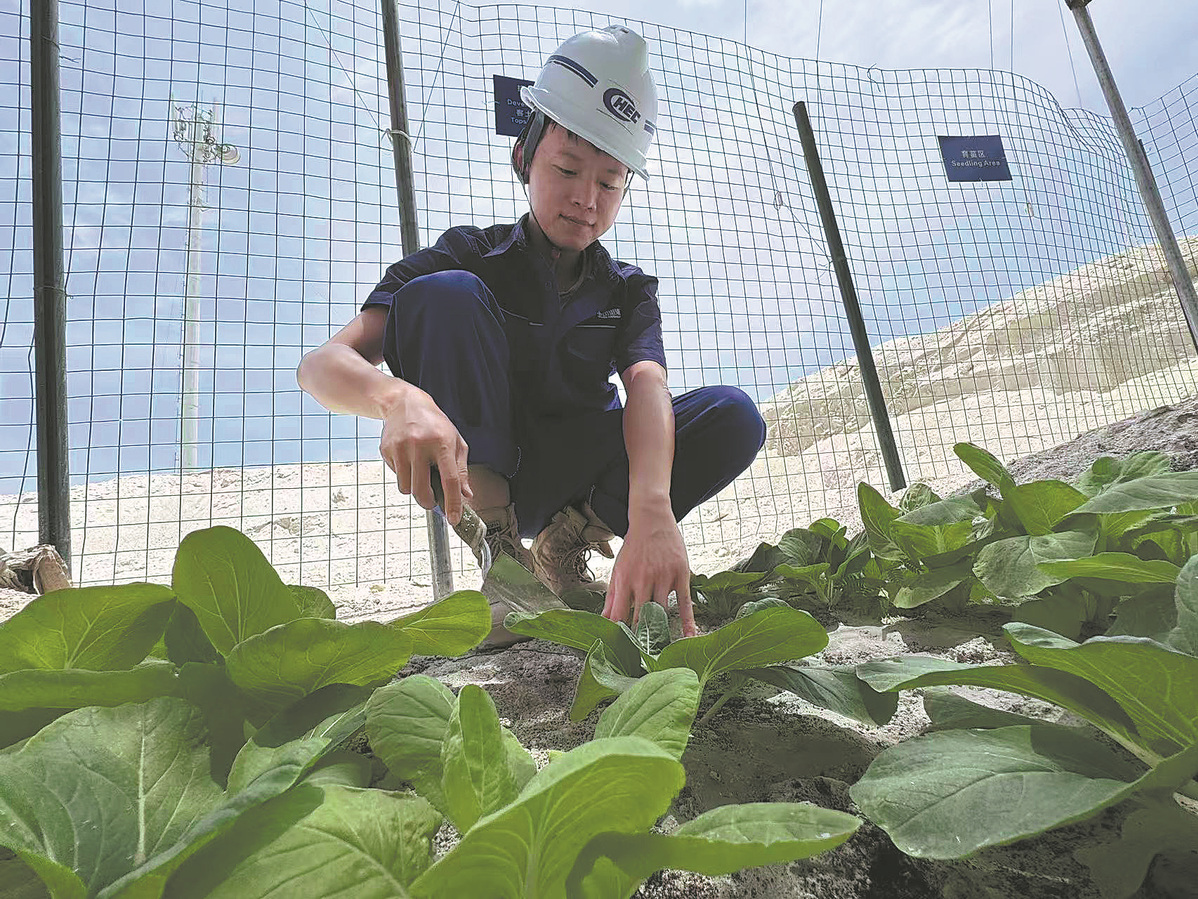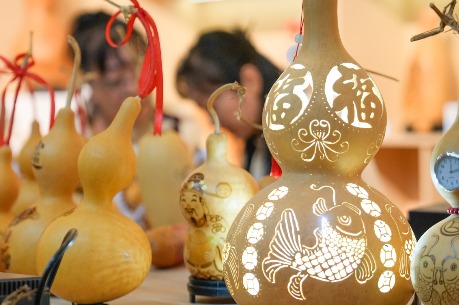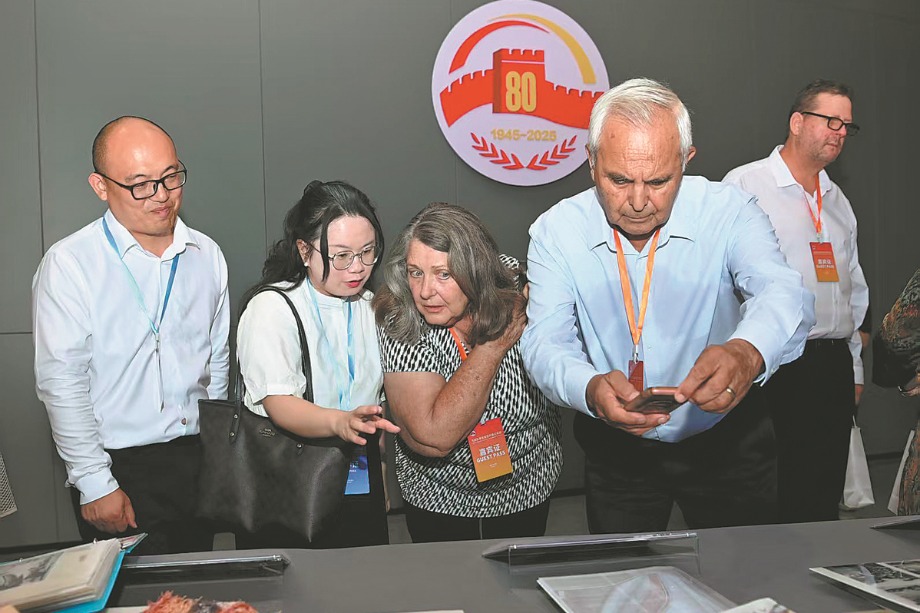Chinese dredging project team grows bok choy on coral sand in Maldives


Workers from China Communications Construction Company's Guangzhou Dredging have found a way to grow fresh bok choy on barren coral sand, a sweet and tender delicacy in the Maldives, where fresh vegetables are a luxury.
"The bok choy, or Chinese flowering cabbage, is so tender and sweet. It's absolutely delicious!" a worker said in the company canteen.
Fresh vegetables are a luxury in the archipelago that is better known as a tourist destination. It has just 69 square kilometers of arable land with severe soil salinization. This results in 90 percent of its food supplies being imported.
"Agricultural planting conditions in the Maldives are extremely harsh," said Li Yaohua, manager of the technical team for the Maldives project department of CCCC Guangzhou Water Transportation Engineering Design and Research Institute.
Li's team took on the challenge of growing high-yield, high-quality vegetables on coral sand at the beginning of the year. Imported vegetables are not only expensive but also difficult to keep fresh, posing food safety risks and increasing project expenses.
According to Li, imported bok choy costs 212 yuan ($29.86) per kilogram, lettuce 113 yuan per kg and cilantro 134 yuan per kg. The prices of common leafy vegetables can be more than 10 times what they cost in China.
After months of intensive research, Li's team found a solution to the harsh conditions of high temperatures, high humidity, poor soil quality and a scarcity of fresh water. By using kitchen waste to improve the coral sand, they successfully grew lush, green, high-yield bok choy.
"Through technical measures, we effectively lowered the soil's pH value, increased electrical conductivity and nitrogen concentration, and reshaped the crop growth environment," Li said. "We successfully transformed the barren coral sand — where not a blade of grass grew in the past — into 'fertile soil' suitable for vegetable cultivation."
The bok choy can grow vigorously and takes only 20 days to mature on average. The self-developed bok choy can yield more than 700 kg per 666.67 square meters in a single-season trial planting.
Li's team has also planted pumpkins, chives, potatoes and tomatoes. The team said the experiments do not damage the local ecology and environment because the planting is done on land already rendered unsuitable for plant growth.
Except for the cost of buying seeds, irrigation water and fertilizers come from daily life waste, including air-conditioning condensate and kitchen waste.
"Through the coral sand soil improvement experiments, we have not only found a solution to the practical dining problem of Chinese overseas workers, but also explored a new technical path suitable for the agricultural development of tropical atolls," Li said.
Shen Youbin, manager of CCCC Guangzhou Dredging's project in the Maldives, said the experiment has provided a new approach to solving the dilemma of scarce agricultural resources in the country.
Li's team will continue to optimize the planting technology to provide Chinese solutions for agricultural development in the Maldives and other similar countries, allowing more Chinese overseas workers and local residents to enjoy "vegetable freedom".
- Chinese dredging project team grows bok choy on coral sand in Maldives
- GeSI, Tencent to launch UN platform at COP30 climate meeting
- PKU to remove GPA in students' evaluation reform
- Beijing rocket firm sets record for thrust
- Soccer super league drives consumption
- Low-carbon tech key to addressing energy demand





































